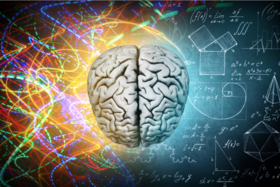How to train memory and attention — basic techniques

The desire to find an effective method that will help in achieving a higher level of intellectual development is a very commendable trend. However, in order to turn the process from the fashionable one into the effective one and make it the stage of self-improvement, it does not hurt to understand what exactly you want to strengthen in yourself.
In order to choose a strategy for the development of basic thought processes - attention and memory, it is important to accurately set a practical goal. Only in this case, any theory becomes an effective method of achieving it. This article provides answers to questions about how to improve the mechanisms of memorizing. And yes, our website for memory training serves as an effective tool for the development of mental abilities that even a child can master easily. So how to train your memory skills?
Memory is the mental process of capturing, storing, playing and forgetting information. This process is one of the fundamental for the development of human intelligence. It is important to take into account the peculiarities of this mental process for different age stages in order to achieve the maximum effect from the application of training methods.
The following memory levels are distinguished by the duration of their storage:
- instant;
- short-term;
- buffer (intermediate);
- long-term.
Each stage of processing and storing information in memory is responsible for certain areas of human mental activity. Depending on this, the methods and tasks of improving mental processes differ from each other.
- Instant memory. This process, according to a number of psychologists, is of a direct nature, it is uncontrollable. Instant memory is also associated with sensation and provides a holistic perception of the surrounding picture of the world in minimal time.
- Short-term memory. At this stage, information is stored that is either lost or becomes the subject of interpretation. This is a level of the information that a person can manage and it can be developed with the help of repetition, symbolization, its volume is considered equal to 7 ± 2 units, although there is also an opinion of some researchers that this indicator should be considered as 5 ± 2 units.
- Buffer memory. The middle stage, the transformation, the transformation of information in the long-term, carried out in a dream, uncontrolled stage.
- Long-term memory. It is not limited in time and volume, but its availability is determined by the type of storage. Voluntary form - undergoes transformation, involuntary - remains unchanged. This is the most important stage of a person’s psychic ability, which is directly related to his social success
For children, short-term memory is prevailing. During this period, it is important to select developmental methods for them that help the formation of an associative, emotional perception of the world. Memory for details is also very important! Games for the development of imagination and logical thinking should be a constant element of their learning. This should not be limited to school curriculum standards; they should be a natural element in the process of raising children.
Information received from outside is transformed under the influence of many factors of the subjective and objective plan into long-term memory. The latter, transforming in the process of life, forms the experience of a person and becomes the foundation for conscious choice in social practice, influences the success of a person in life.
The choice of methods for improving mental processes depends on the age of the person and his individual characteristics. There are general rules. For example, giving the opportunity to develop both the right and left hand equally helps to harmonize both areas of the brain responsible for the development of symbolic and logical forms of thinking.
Exercises for memory training can be a powerful catalyst for the speed of mental processes for converting external information into the baggage of human knowledge. How to train memory recall- get acquainted with the most simple and effective ways to develop abilities.
What is the best training method for developing short-term memory?
Short-term is an analogue of operational computer memory. It helps in the quick "disposal" of the information received. The goal of the stage is to assimilate the maximum amount of information. For this purpose, effective techniques are:
- grouping of objects;
- symbolization.
The grouping method is often used as a marketing tool in sales and it gives a good result. Duplicate numbers or a successive series of numbers are easily perceived and transformed into a personal baggage of knowledge, sometimes without the desire of a person. Breakdown of the phone number into convenient digital groups has become the norm.
A mnemonics is a method of memorizing quickly a large amount of information that is logically unrelated to each other. The method is based on the creation of symbols, associative series. At the core there lies the visual way of effectively perceiving the world around us for a person. The method is characterized by the use of all other sensory channels: touch, smell, taste, sound.
Visualization is an effective way to increase the amount of perception of information per unit of time. The use of presentations, increasing the visibility of the material in the form of graphs, diagrams, drawings are widely used in business practice.
Effective methods of mastering a large amount of information have been developed in special areas: the military sphere, scientific research. The methods of NLP (neuro-linguistic programming) allow you to manage the process of memorizing at the subconscious level.
The purpose of the development of short-term memory is in creating the foundation for long-term, which solves the main task: to form the personal experience of the person. What exercises can we do and what is needed to develop this ability?
Best methods for long-term memory development
This type of memorizing becomes the basis of the skills and abilities of a member of society. The more experience a person has, the more tools they own. The development program allows you to achieve a high level of skill, to keep the intellectual resources of the body up to date.
Concentrated attention is the mental process of identifying personality-significant signals relevant to the subject of perception, it helps to improve memory. It requires a minimum amount of effort for the information assimilation if it is important for a person. This quality is of particular importance in the process of education (at any level - pre-school, school, higher, vocational, special).
Exercises to train long-term memory are developed in four areas:
- increased attention;
- flexibility of attention;
- methods of quick assimilation of information:
- strategies for effective memorizing.
Attention span
The amount of attention can be increased through the formation of concentration skills.
Exercise: for 3 minutes, concentrate on a pleasant object and try to remove all thoughts from your head, without being distracted by extraneous noises. This will help learn to get rid of the "mental noise", which makes it difficult to focus on complex matters.
<h2>Flexibility of attention</h2>
The development of flexibility is achieved through the active use of imagination and visual images. The best way is to do it through the game.
A simple way is the game "Polymorph", which consists in the mental representation of yourself at the suggestion of your opponent in a certain interior. For example, according to the assignment you need to imagine yourself as a lonely tree in the field.
Fast learning
A popular method of rapid assimilation of information is the method of rhyming, the establishment of an associative series.
Daily training of memory and attention in order to memorize a large volume and maintain the flexibility of thinking will be effective through the use of traditional methods such as:
- the study of foreign languages, their improvement;
- learning and memorizing poems;
- reading literature, expanding personal vocabulary;
- use of logic games, trainings of personal growth;
- solving puzzles, crosswords;
- chess game;
- lead discussions.
We should not forget about the fact that mental processes are closely related to physiology. Maintaining the body in good physical shape, a balanced diet at any age, providing it with essential nutrients and trace elements is a healthy basis for the full activity of the brain. So our advice is to lead a healthy lifestyle and develop yourself!











